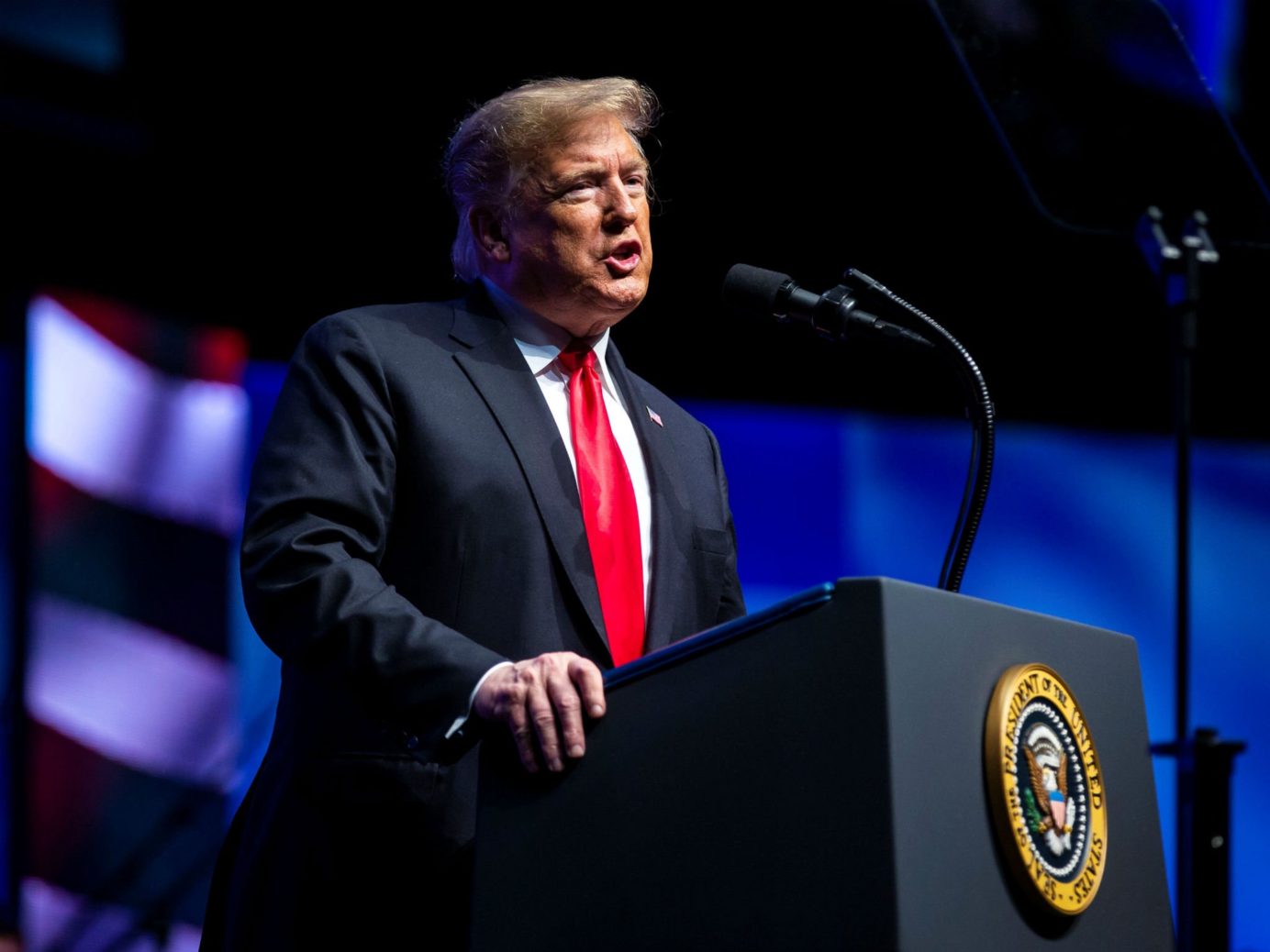Trump’s Response To Pittsburgh Shooting Isn’t Enough

by Will Unger ‘19
The deadliest attack against Jews in America did not happen in some bygone age of bigotry. It happened on Saturday, October 27, 2018. That morning, during Shabbat services, a gunman entered the synagogue and opened fire, killing 11 people.
In response, President Donald Trump took to Twitter, warning local residents to take shelter. Trump’s’ initial postings made no mention of the fact that the shooting took place at a synagogue. When he spoke with reporters outside of Air Force One in the hours after the shooting, Trump responded to a question about revisiting gun laws by saying that, “If they had protection inside, the results would have been far better.” Trump went on to say that this violence takes place all over the world, simply stating that “the world has violence.”
It took him another four hours to mention that the attack had taken place at a synagogue and was of an anti-semitic nature. “Anti-semitism must be confronted everywhere … it appears. There must be no tolerance for anti-semitism in America or for any form of religious or racial hatred or prejudice,” Trump finally said during a statement to the Future Farmers of America (FFA) convention later that day.
While some have lauded Trump for this response, and certainly it seems that he has said some of what a president should say in such a situation, one has to look at his words in context.
First and foremost, Trump’s statement at the FFA convention was a speech that had been thought out and prepared for him. In comparison, his statements on Twitter and to reporters, which were his own unfiltered words, said nothing of anti-semitism.
Secondly, Trump has long employed hateful rhetoric on the basis of race and religion. He has a history of being strongly islamophobic, having called for surveillance of mosques, and falsely claimed that “people over in New Jersey that were watching it, a heavy Arab population, that were cheering as the buildings came down…” The cornerstone of his presidential campaign was the building of a border wall to keep out illegal immigrants from Mexico, who he has called “drug dealers, criminals, [and] rapists.” For weeks now, Trump has been spreading lies and making disparaging comments about the migrant caravan in South America, and at one point claimed that “Criminals and unknown Middle Easterners are mixed in.” Four days after the shooting, Trump commented that he “wouldn’t be surprised” if the caravan was funded by the philanthropist and Democratic donor George Soros, who he has previously accused of similar acts.
Trump made an adequate response to the shooting in Pittsburgh. He did not go above and beyond, but he did at least the bare minimum. That’s not really something to praise in the first place, but when taking in context of everything else he’s said, his response comes across as totally disingenuous. His hateful rhetoric has normalized the very rhetoric that leads to hateful attacks like this. By espousing the same racist ideas as white-nationalists and nazis, Trump has made it seem like these things are OK, because if the president can say and think these things, then it’s okay for the average citizen. Trump has done irreparable damage that cannot be undone by a speech and a single visit to a synagogue. The flames of bigotry that Trump has fanned in his base can’t be put out by a single drop of water.